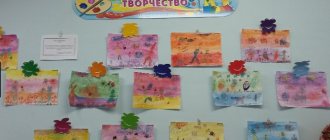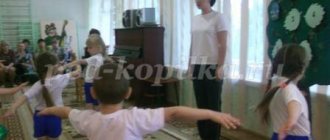The direct process of learning to read and write
Methodologists of each educational institution are involved in the development of a program for introducing preschoolers to letters and sounds. That is why classes in different kindergartens can differ significantly. But, despite external differences, the meaning of the educational process is the same throughout the entire education system. It includes three stages already listed above.
Of course, when directly studying letters, the teacher takes into account many factors: the mood of the children at a given moment, their number, behavior, as well as other important little things that can improve or worsen perception.
The most popular method of teaching literacy
One of the sources of teaching activity was the book by K. D. Ushinsky “Native Word”, published in the 19th century. It outlined the basic methods of teaching children to read and write. Since reading was considered one of the most important elements of education, the issues of its teaching have always been very relevant.
It is highly recommended that you read this book before starting a Literacy Lesson. The preparatory group is the most difficult period of preparing children for the school program, so here you need to be extremely attentive to the individual mental and psychological characteristics of each child. Methods developed by linguists and teachers will help with this.
Ushinsky created a sound analytical-synthetic method of teaching literacy, which is based on considering letters not as individual elements, but as an integral part of words and sentences. This method allows you to prepare your child for reading books. In addition, it makes it possible to awaken children’s interest in literacy, and not just force them to mechanically learn and remember letters. It is very important. Ushinsky proposes to divide the entire teaching process into three components:
1. Visual learning.
2. Written preparatory exercises.
3. Sound activities to promote reading.
This technique has not lost its relevance today. It is on this basis that literacy training is built. The preparatory group, whose program is very rich, gets acquainted with reading in exactly this sequence. These stages make it possible to gradually and gradually present the child with all the necessary information.
A child's ability to reproduce sounds
When a baby is just born, he already has innate reflexes. One of them is the ability to respond to surrounding sounds. He responds to the words he hears by changing the rhythm of his movements and becoming animated. Already in the third or fourth week of life, the child reacts not only to loud, sharp sounds, but also to the speech of the people around him.
It is obvious that simple phonetic perception of words is not the key to successful learning to read. Human speech is extremely complex, and in order to understand it, it is necessary for the child to reach a certain level of mental and emotional maturity.
Researchers have found that the vast majority of children between the ages of six and seven cannot yet separate words into syllables. Therefore, literacy training in the preparatory group should be built in strict accordance with these features. Under no circumstances should you give a child a task that his brain is simply not able to cope with due to its immaturity.
Foreign literacy experience
So far, new methods developed by foreign specialists have not been widely introduced into the Russian preschool education system. The most popular two methods of education that came to us from other countries are the Montessori and Doman systems.
The first implies an individual approach to each child and comprehensive creative development. The second involves studying not letters and sounds separately, but entire words at once. Special cards are used for this. A word is written on each of them. The card is shown to the child for several seconds, and what is depicted on it is also announced.
The Montessori method is difficult to implement in municipal kindergartens, since the number of pupils does not allow sufficient attention to be given to each of them individually.
The Doman system is criticized by Russian speech therapists, who claim that it is applicable for learning English, but not suitable for Russian.




